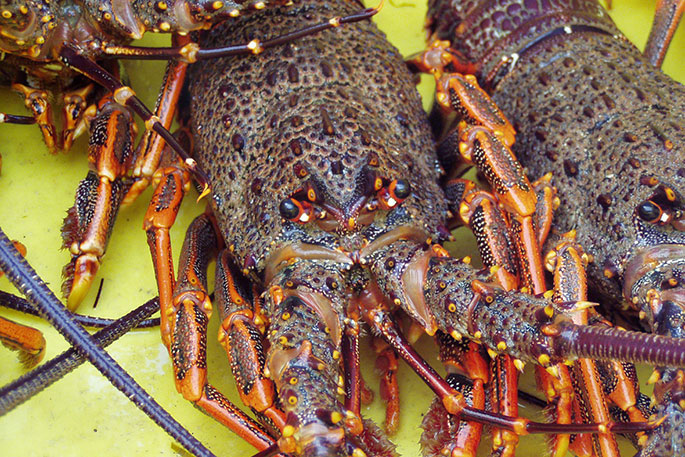From April 1, catch limits for Northland's rock lobster fishery will reduce by 21 tonnes.
Rock lobsters, also known as spiny red rock lobster, crayfish, and kōura, are a taonga for tangata whenua and a popular species for commercial and recreational fishers.
'They provide food for whānau, support valuable export markets and local economies, and provide jobs in our communities,” says Emma Taylor, Director Fisheries Management.
Rock lobster also play an important role in ecosystems as predators, feeding on a wide range of prey including kina (sea urchins).
The reductions to catch limits received ministerial approval following a public consultation and consideration of advice provided by Fisheries New Zealand.
'The Minister's decision takes a precautionary approach, and it is expected to increase rock lobster abundance in the fishery so they can contribute to the control of kina populations over time.
'In Northland, there is evidence that spiny rock lobster abundance is below a level that enables them to play their part in controlling kina populations, which in high abundance are known to cause ‘kina barrens', resulting in less biologically diverse marine habitats.
'We'll continue to assess the effectiveness of the new catch settings on rock lobster abundance and consider if a further review is require for April 2024,” says Emma.
The changes, which come into effect at the start of the new fishing year, on April 1 include:
- The total allowable catch (TAC) decreases by 21 tonnes to 172 tonnes.
- This reduces the commercial limit by 16 tonnes to 89 tonnes, and the recreational allowance by five tonnes to 22 tonnes.
- The customary Māori allowance and the allowance for all other mortality, such as illegal take, will remain the same.
From April 15, the recreational daily bag limit will reduce from six to three spiny rock lobster per fisher per day to manage recreational take within the new allowance.
The decision follows a consultation held earlier this year, as part of Fisheries New Zealand's regular review of sustainability measures, and responds to findings in a recent High Court judgment on last year's decision for the fishery.
Copy of the submissions received, can be found on MPI's website: Review of sustainability measures for fisheries – April 2023 round



1 comment
All very well.
Posted on 31-03-2023 17:13 | By morepork
The road to Hell is paved with good intentions. Unless there is effective policing and enforcement for these measures, you may as well not even suggest them. The sad fact is that there are individuals who are simply short-sighted and greedy, and, unless they KNOW there is a good chance their catch will be inspected, they will carry on as usual. It is a sobering thought that there are many NZers who have never tasted a crayfish and, even worse, are never likely to, (even though this should be a birthright for all Kiwis to have that option), simply because of the short-sighted and greedy.
Leave a Comment
You must be logged in to make a comment.